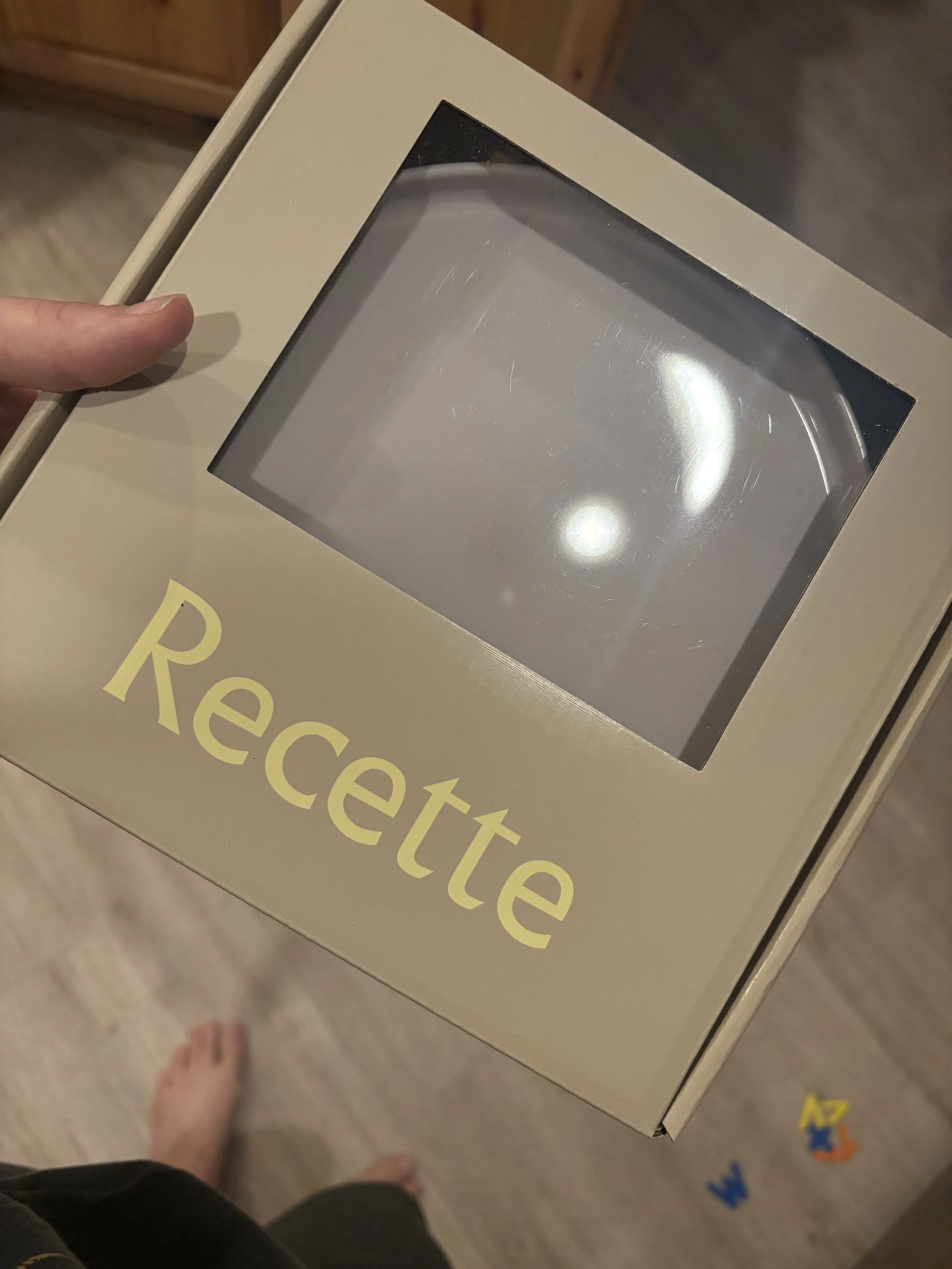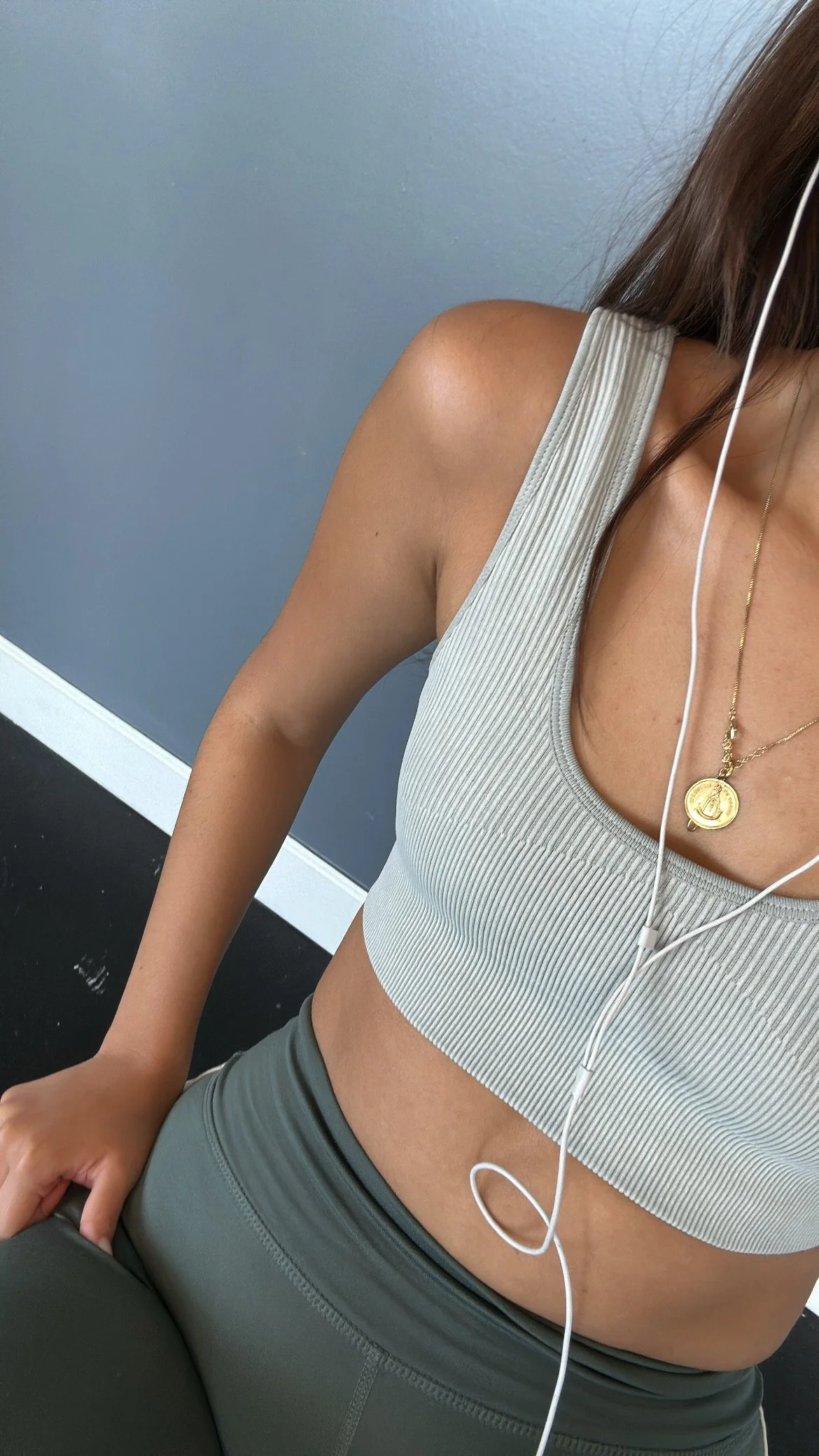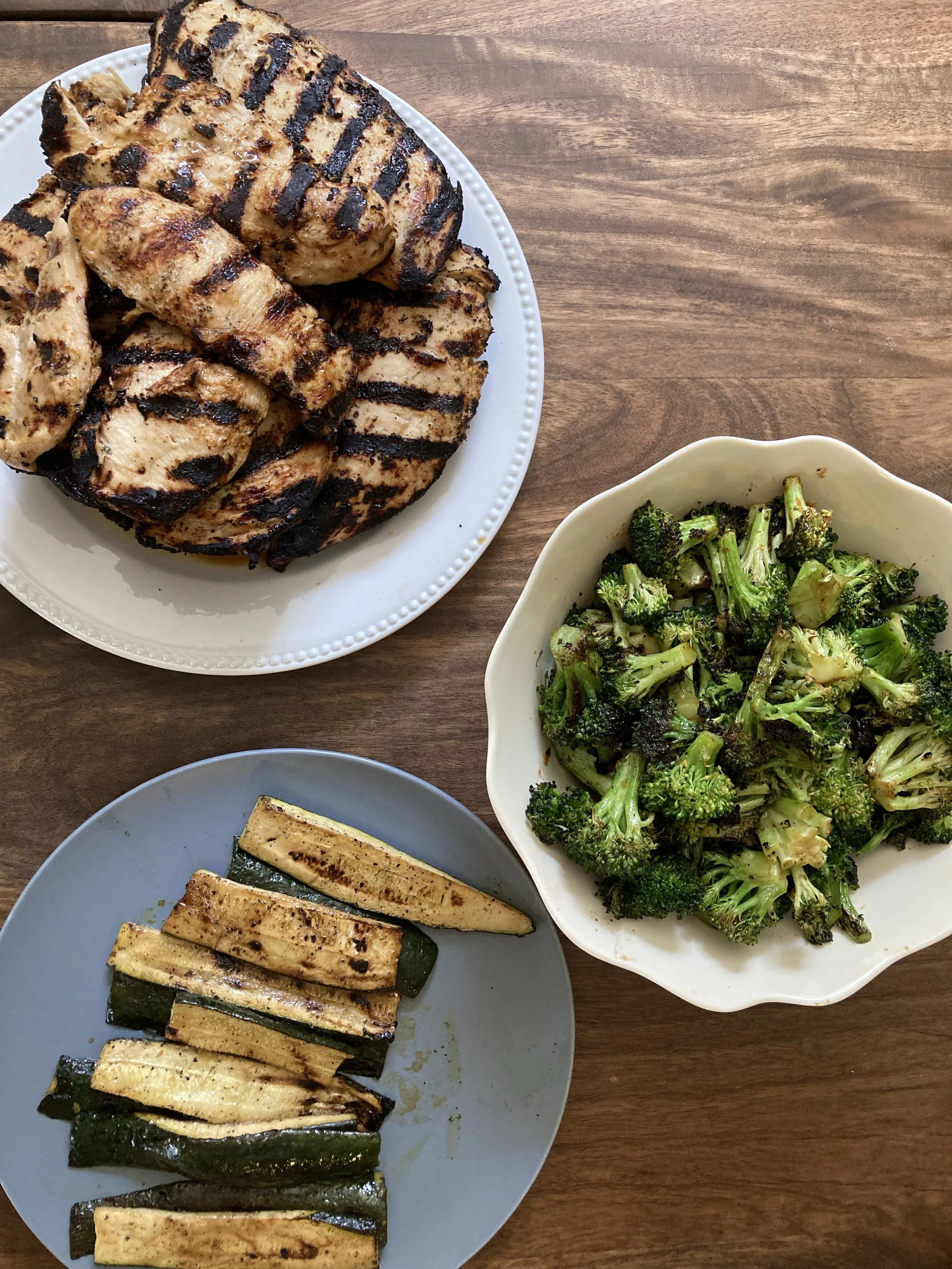My Holistic (and Budget-Friendly) Approach to Supplements
Confused about supplements?
Join the crowd! This post breaks down my unpopular opinion on supplements and what I would prioritize BEFORE supplements, plus the ones I believe are actually worth it.
Ahhh supplements. Probably one of the questions I get asked about most as a health coach, and for understandable reason!
I feel like if you log onto social media and follow anyone that shares about health and wellness, you will find recommendations on some sort of supplementation within just a few minutes. Maybe it is influencer culture and seemingly everyone promoting certain nutrition supplements, or “the best” liquid collagen, or some vegetable supplementation drink… and hear me out, I am not inherently saying those are all bad.
But I am saying that you cannot supplement your way to wellness.
My Unpopular Opinion on Supplements
I truly believe you can live a healthy, vibrant life without supplements. Yup, it’s true.
But supplements can definitely help you optimize your overall health, especially if you are struggling with current health issues. But then the questions is how? and which one?
The method I have used for my personal health and what I recommend to my coaching clients is to take a “food first” approach. This means try to optimize your nutrients by the foods you eat first. If you still have gaps in your nourishment after having a solid foundation of whole, nourishing foods, then is a great time to try supplementing and optimizing things further.
I truly believe that transitioning to whole, nutrient-dense foods (and enough of it to adequately nourish your body) is single-handedly the greatest thing you can do for your health. Making this a priority will “move the needle” on your health, so much more noticeably than most anything else.
Plus, by prioritizing nutrients from their food source rather than their supplement version you will have a more budget friendly, and bio-available version! Bio-available simply means that your body is able to actually use the nutrients effectively.
How to Create a Nourishing Food Foundation
Start with whole foods. (no, not the grocery store😉)
This means whole, nutrient-dense foods with minimal added ingredients, if any. This includes things like high-quality animal products, organic fruits and vegetables, well-prepared grains and legumes. A whole foods based meal plan may look something like this:
Breakfast: eggs, organic sausage and roasted potatoes
Snack: Sardines and sourdough crackers
Lunch: Roasted chicken and sauteed root vegetables
Snack: Greek Yogurt and fresh fruit
Dinner: Pulled pork tacos with homemade sourdough tortillas
It doesn’t have to be complicated. Just focus on real food and creating a balanced meal by pairing carbs, fats and proteins. Try to reframe your mindset about food into creating snacks and meals that nourish your body and provide it with all the building blocks needed to function optimally!
Related Reads:
The Importance of Balanced Snack and 30 Ideas
Easy Ways to Increase the Nutrients in Your Meals
My Favorite Nutrient-Dense “Superfoods”
Liver (and other organ meats too!)
Did you know that for hunters, organs are the most prized part of the animal? This stems from earlier days when nutrients and food may have been more scarce and people knew that these were the most nutrient-dense parts of the animal.
Now we tend to prioritize lean, muscle cuts of meat and avoid all the “extras”- especially the organs.
But over the last few years, thanks to ancestral diets and pro-metabolic eating becoming more popular, people are starting to realize how incredibly beneficial organ meats are for your health!
In one 3 oz. serving of liver you get:
>3,000% of you recommended daily intake (RDI) of vitamin b12
>800% of your RDI of Vitamin A
>200% your RDI of vitamin B2
65% your RDI of folate
>1600% your RDI of copper
plus so many more!
Because of how nutrient- dense liver is, it is recommended to only have 1-2 servings per week.
If the thought of liver kiiiind of freaks you out, desiccated liver capsules can be a great place to start. I also really love organ meat blends like this one from Force of Nature- they are so easy to use as taco meat, spaghetti sauce, or really any other recipe that calls for ground meat.
Related Reads:
Bee Pollen
Honey has long been known as a superfood, but bee pollen is now increasing in popularity for it's nutritional benefits as well!
Bee pollen is small, granules of bee saliva, pollen, honey, and nectar. These small granules have been shown to:
decrease inflammation
rich in vitamins (B1, B3, B7, B9, E, A, D, and C), minerals (Calcium, Sodium, Potassium, Copper, Magnesium, and Zinc), and antioxidants
animal studies have shown that bee pollen may be able to support the liver in detoxification
Some Ways to Include them In Your Diet:
Sprinkle on toast, yogurt bowls, or smoothies
Dissolve in water and add to drinks throughout the day
Caution:
If you have a known bee allergy or sensitivity, avoid using bee pollen.
Also, if you are unsure of your allergy status, proceed with caution. It is recommended to only start with a single granule and look for any itching, swelling, or irritation in the mouth. If you do not experience any of those symptoms, slowly increase the amount you are ingesting up to 1 TBSP.
Oysters
Whether raw, smoked, or steamed oysters are incredibly nutritious. They are high in levels of B vitamins, copper, manganese, and vitamin D. They also are rich in trace minerals like zinc and selenium. I love buying them when they are on sale through Thrive Market, and have even occasionally found them at my local Costco.
I personally love to eat smoked oysters on top of crackers for a quick and easy snack!
Bone Broth
Bone broth is made from cooking bones, skin, and connective tissue from animals for 12-24 hours. This long cooking process breaks some the gelatin and minerals, and creates a rich broth for drinking and cooking. Not only is it rich in protein, but calcium, sodium, zinc, boron, and magnesium!
Check out this link for my easy bone broth recipe!
Some of my favorite ways to include bone broth in my diet:
replacing water with bone broth in savory recipes
drinking with some added seasonings for a warm, nourishing beverage
Look up Fallon's Table Bone Broth Hot Chocolate (you can thank me later 😉)
Dark Leafy Greens
Often times dark leafy greens can get a bad rap in the pro-metabolic community. The thought behind this is that raw vegetables can sometimes be hard on the digestive system-especially if you have slow mobility in the gut.
This is where you need to turn inwards and see how you feel after eating a small kale salad, or spinach. If you experience bloating, gas, or discomfort, your digestion may not be able to handle raw greens quite yet.
But there are other ways to include them into your diet and take advantage of their nutrient profile! You can saute in butter until well cooked, or throw into a pot of bones to make bone broth. They are a great source of iron, magnesium, potassium, and calcium!
Some of my favorites to include are:
kale
spinach
bok choy
swiss chard
Supplement Sourcing Warning and Recommendation
The sale of dietary supplements is not regulated or enforced-- that means there are many counterfeit products you can find online. In a recent study less than 50% of supplements tested actually contained what they were marketed to. Not only is this so scary as a consumer (because what is actually in the supplement you just purchased) but it is also not sustainable from an economic standpoint. I tend to have a more conservative approach with my clients and supplementation, believing that most things you can get from a diet of whole, nutrient-dense foods. So when I do recommend something, I want to make sure that what they are spending money on is actually what they are wanting to purchase and will help their bodies heal.
This is why whenever I link a supplement, it is only linked to Amazon if I can confirm it is distributed by the actual brand, not a counterfeit or duplicate.
But whenever possible, I will link directly to the manufacturer’s website to make sure you are getting the highest quality supplement! The following brands are ones that I personally have researched, taken, and loved. They all prioritize sourcing from high-quality sources, and deliver products that actually work👏
Perfect Supplements- my go to for collagen and gelatin products! I also love that you can purchase other trusted brands from their site. You can buy products from Smidge, Rosita, and Gaia Herbs— all other high-quality supplement brands.
You can use code Kaelyn10 for 10% off your order 🎉
My Favorite Supplements
Supplements definitely can have their place in a healthy lifestyle, especially through seasons of increased stressed or illness. Some of these supplements I keep on hand for extra support
Magnesium- did you know that magnesium is critical for over 300 bio-chemical reactions in the body!? And while it was once a mineral that was abundant in water and produce, due to non-sustainable agriculture methods, fruits and vegetables are depleted of this mineral. Magnesium is something I personally supplement daily.
epsom salt baths or magnesium flakes- a warm mineral-rich bath in the evening is so relaxing and sets me up for such a great night’s sleep
Smidge Morning Magnesium- This unique combination of 3 forms of magnesium: magnesium orotate, magnesium taurinate and magnesium malate. Unlike other magnesium supplements this one actually helps boost energy, as opposed to relaxation. While some people enjoy the relaxing effects of magnesium others prefer to take it in the morning and this offers a great alternative!
Magnesium Bicarbonate Powder- one of the most powerful, bio-available forms of magnesium you can take. Interestingly, this form is only active in liquid form so this powder needs to be mixed with high quality carbonated water! While it is more expensive, the small jar lasts forever. Or you can purchase a pre-made drink.
Magnesium Lotion- I have a blog post here all about my favorite magnesium lotions to use!
Whole Food Vitamin C Powder- I love adding this into smoothies for an extra vitamin c boost or adrenal cocktails if I am feeling under the weather.
Trace Mineral Drops- Depending on what type of water filter you have, your water may actually be doing more harm than good if it is completely devoid of minerals. These mineral drops are great to have on hand to make sure your water has the trace minerals your body needs.
Cod Liver Oil - this is my favorite way to supplement vitamin d (other than soaking up the sunshine it’s self, of course!) When buying fish oils of any kind you need to be sure you are purchasing from a high-quality company to ensure you are purchasing oils that are not oxidized. (oxidized oils cause inflammation!)
Grass-Fed Pasture Raised Collagen Powder- I have tried so many collagen powders. I love that this brand stands by a money back guarantee and ensures their products are glyphosate free!
Desiccated Liver Supplement- liver is a nutrient powerhouse.. but not everyone loves including organ meats into their diet. This is a great alternative!
Related Reads:
My Favorite Collagen Coffee Recipes
Healthy and Easy Gelatin Recipes
As always, make sure you are touching base with your medical provider before starting a new supplement. Just because someone else on the internet takes it, doesn’t mean it is appropriate for you and your specific health needs. If you have questions or need recommendations on a good place to start, you can always reach out at hello@wellnesswithkaelyn.com ☺️












Looking for a natural fiber underwear brand that ACTUALLY fits and is comfortable? Today I am sharing my favorite go-to underwear brand!